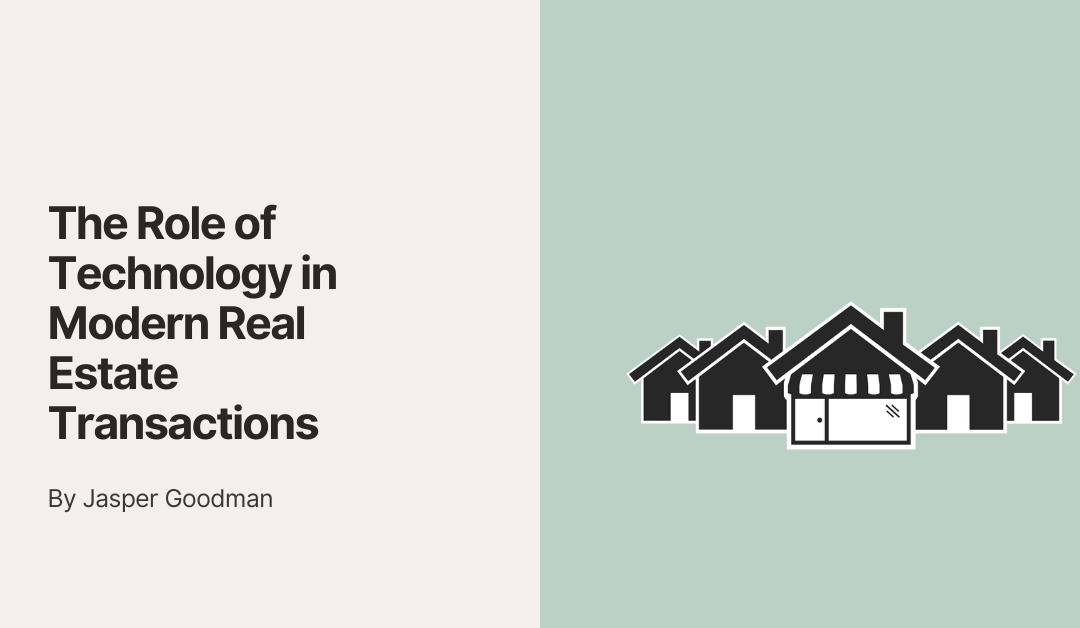In an era characterized by digital innovation, the real estate industry is undergoing a transformative shift driven by technological advancements. From property searches to transaction processes, technology is revolutionizing every facet of real estate transactions.
1. Virtual Property Tours
The traditional approach of physically touring multiple properties to find the right fit is being revolutionized by virtual property tours. With the advent of virtual reality (VR) and augmented reality (AR) technologies, potential buyers can explore properties from the comfort of their homes. Virtual tours not only save time but also provide a more immersive and interactive experience, allowing buyers to envision themselves in a property before making physical visits.
2. Online Property Listings
The internet has become the go-to platform for property listings. Online real estate portals aggregate a vast array of properties, complete with detailed descriptions, high-quality images, and sometimes even virtual tours. This shift to online listings has democratized property searches, empowering buyers and sellers with easily accessible and comprehensive information.
3. Big Data and Analytics
The integration of big data and analytics has revolutionized market analysis and property valuation. Real estate professionals now leverage data-driven insights to make informed decisions regarding property pricing, investment opportunities, and market trends. Predictive analytics can forecast future property values, helping buyers and sellers make strategic decisions based on a deeper understanding of the market dynamics.
4. Electronic Document Management
Gone are the days of cumbersome paperwork in real estate transactions. Electronic document management systems streamline the process by enabling the creation, signing, and storage of digital documents. This not only accelerates the transaction timeline but also reduces the likelihood of errors and enhances document security.
5. Blockchain for Security and Transparency
Blockchain technology is gaining traction for its potential to bring enhanced security and transparency to real estate transactions. Smart contracts, powered by blockchain, can automate and enforce contractual agreements, reducing the need for intermediaries. Blockchain’s decentralized nature also minimizes the risk of fraud, providing a secure and transparent platform for property transactions.
6. Online Mortgage Platforms
The mortgage application process has been streamlined through online platforms. Borrowers can now complete applications, upload necessary documents, and track the status of their mortgage applications digitally. This not only expedites the approval process but also offers greater convenience to buyers seeking financing.
7. Artificial Intelligence in Customer Service
Artificial intelligence (AI) enhances customer service in real estate. Chatbots and virtual assistants powered by AI are capable of handling inquiries, providing property information, and even scheduling appointments. This 24/7 availability improves customer service efficiency and responsiveness, ensuring that potential buyers or tenants receive timely assistance.
8. Mobile Apps for Property Management
Mobile applications have become indispensable tools for property management. Landlords, property managers, and tenants can use mobile apps to streamline communication, report, and track maintenance issues, and make rent payments. These apps contribute to a more efficient and transparent property management experience.
9. Remote Online Notarization
In response to the need for social distancing and remote transactions, many regions have adopted remote online notarization (RON). This technology enables parties to complete notarization processes remotely through secure online platforms, eliminating the need for in-person notarization and facilitating the closing of real estate transactions.
10. Augmented Reality for Home Staging
Augmented reality is being employed for virtual home staging. By overlaying digital furniture and decor onto real-world images of empty spaces, potential buyers can visualize the potential of a property. This innovative approach to home staging enhances the marketing appeal of listings and helps buyers envision the possibilities of a space.
Challenges and Future Considerations:
While technology brings numerous advantages to real estate transactions, challenges and considerations must be acknowledged. Privacy concerns, data security, and the potential digital divide where not all individuals have equal access to technology are important aspects that need ongoing attention.
The future of technology in real estate holds exciting possibilities. Continued advancements in AI, blockchain, and other emerging technologies may further streamline processes, enhance security, and reshape the way properties are bought and sold. Additionally, the integration of sustainable technologies and smart home features is poised to become a significant trend in modern real estate.
Technology has become the cornerstone of modern real estate transactions, reshaping the industry in ways unimaginable just a few decades ago. From the initial search for properties to the final closing documents, technology has brought efficiency, accessibility, and innovation to every step of the real estate journey.
As technology continues to advance, real estate professionals, buyers, and sellers must stay abreast of emerging trends and adapt to the evolving landscape. Embracing these technological advancements not only streamlines processes but also enhances the overall experience, making real estate transactions more accessible, secure, and efficient for everyone involved.

